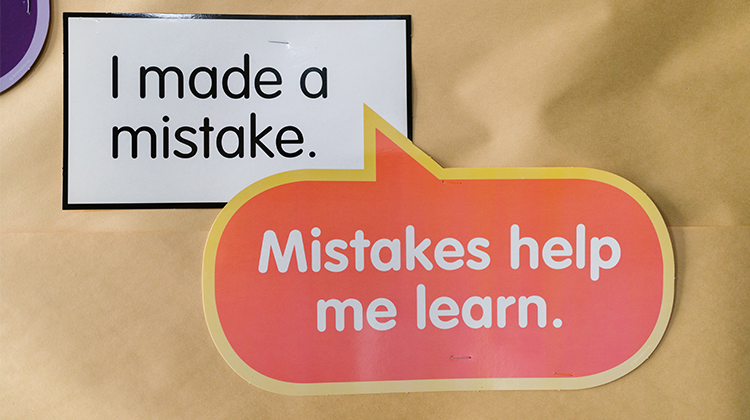Latin adage says: “ Errare humanum est, perseverare autem diabolicu.” Seneca.
Making mistakes is human nature, but persisting in making the same mistakes is “demonic” behavior. Therefore, making mistakes is the best symptom that we are on track to managing the target language properly, but we need not fall at the same mistakes once and again.
In this list, you can read, reflect and review fifteen sentences written with one mistake. Please read it and write down the incorrect or missed word. At the end of the list, check your answers by reading the correct sentences.
Incorrect sentences
1- Yo soy veinticinco años
2- Este pan es bien
3- a) No puedo ir al cine esta noche.
b) No problema.
4- ¿Qué es tu ciudad favorita?
5- En la vida hay mucha problemas
6- Esto pescado está mucho bueno.
7- Nosotros vivimos en Madrid para tres años.
8- Tengo quinicientos euros.
9- Por favor, quiero un otro helado
10- La gente somos muy trabajadoras
11- La reunión está en el hotel Hilton
12- Uno momento por favor
13- ¿Cómo es la clima en invierno en tu ciudad?
14- Madrid es en el centro de España
15 - a) Señor, ¿quiere alguno de beber?
b) Gracias quiero nada
Now it’s the “learning” time. Please read the correct sentences and explanations.
Correct sentences
1- Yo tengo veinticinco años
In the Spanish language we “have years”, not “are years”
2- Este pan es bueno.
Ser verb + adjective: bueno, bueno, buena, buenas (not the adverb ‘bien’)
3- a) No puedo ir al cine esta noche.
b) No hay problema.
In English language : ‘No problem’ but in Spanish always: ‘No hay problema’
4- ¿Qué es tu ciudad favorita?
When we ask about different options to choose from, we use the interrogative pronoun: ‘Cuál’ not ‘Qué’
5- En la vida hay muchos problemas.
The word ‘problema’ is feminine (it’s a gender exception), so the adjective has to agree with the noun.
6- Este pescado está muy bueno.
Two mistakes:
1) The demonstrative masculine is ‘este’ not ‘esto’ (it’s neutral demostrative)
2) In front of an adjective, in this sentence ‘bueno’, we use and adverb like ‘muy’
7- Nosotros vivimos en Madrid por/durante tres años.
Expressing a period of time, we don’t use the preposition ‘para’.The best option is to use ‘durante’ although ‘por’ is correct as well
8- Tengo quinientos euros.
Cien. Doscientos. Trescientos. Cuatrocientos. But... Quinientos
9- Por favor, quiero otro helado.
When we want to ask for another thing, it’s not necessary ‘un’
10- La gente es muy trabajadoras
Watch out, in the English language ‘the people’ is plural, but in Spanish ‘la gente’ is singular.
11- La reunión es en el hotel Hilton.
As you know, the ‘estar’ verb is used for locating people, animals or things. However, when we want to locate people at social events (meetings, weddings, parties, etc.) there is an exception, we use ‘ser’ verb instead of ‘estar’
12- Un momento por favor
In front of a masculine noun, it’s used the short adjective ‘un’
13- ¿Cómo es el clima en invierno en tu ciudad?
In general, the Spanish nouns ending with the ‘ma’ syllable are feminine.
14- Madrid está en el centro de España.
For locating: people, animals, or things, we use the ‘estar’ verb (except for locating social events as we saw above)
15 - a) Señor, ¿quiere algo de beber?
b) Gracias no quiero nada
1) In front of an uncountable noun, we use the indefinite pronoun ‘algo’ (‘alguno’ is used as an indefinite pronoun referring people: ¿Alguno de vosotros quiere beber algo? ~ Any of you want to drink something?
2)In Spanish the double negation is common: no - nada
Should you have any questions, feel free to type in the comments.
Finally, let me have an idea that I bear in mind: “Your best teacher, it’s your last mistake.”
Keep making mistakes!







